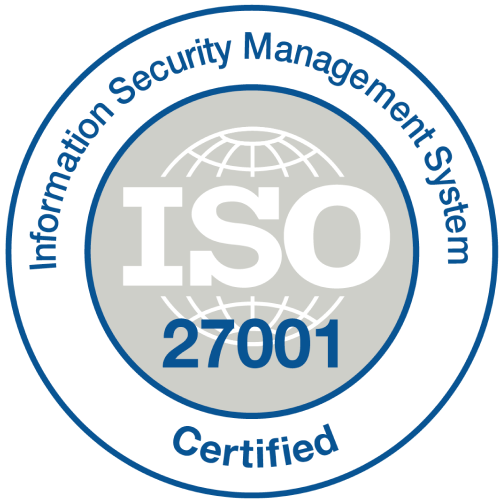
What are organizational development jobs?
Organizational development specialist jobs focus on improving a company's overall efficiency, culture, and employee performance through strategic planning and change initiatives. Professionals in these roles analyze business structures, identify areas for improvement, and implement programs that drive long-term growth. These positions require expertise in leadership development, employee engagement, and process optimization to align an organization’s goals with its workforce’s potential.
Careers in organizational development revolve around enhancing workplace effectiveness by fostering collaboration, improving communication, and streamlining operations. These professionals often work within HR departments or as external consultants, advising businesses on restructuring strategies, performance management systems, organizational psychology, and leadership training programs. Their work directly impacts productivity, employee satisfaction, and overall business success.
Organizational project management is another key aspect of org development jobs. It involves designing and executing initiatives that support company-wide transformation, such as diversity programs, change management processes, or digital adoption strategies. These roles demand analytical thinking, problem-solving skills, and the ability to influence senior leadership.
Organizational development careers are available across industries, including healthcare, finance, technology, and manufacturing. Companies rely on these experts to navigate change, enhance employee performance, and create a the environment and culture that fosters innovation and growth. With businesses continuously evolving, the demand for OD professionals remains strong, making it a promising career path for those interested in shaping workplace dynamics.
Key takeaways from the blog
- Organizational development jobs focus on improving workplace efficiency, employee engagement, and company culture. These roles drive strategic growth, talent development, and long-term business success.
- Key skills for OD careers include change management, data analysis, leadership development, and collaboration. Professionals must adapt to evolving business needs and workforce trends.
- The future of OD emphasizes data-driven decision-making, AI integration, and personalized employee development. Organizations investing in OD gain a competitive advantage and sustainable growth.
Why is organizational development important for businesses?
Organizational development is essential for businesses as it strengthens company structure, enhances workforce capabilities, and drives long-term success. By focusing on continuous improvement, businesses can adapt to changing markets, boost employee performance, and create a resilient work environment. It ensures companies remain competitive by fostering innovation, efficiency, and strong leadership.
- Enhances business agility: Organizational development enables companies to respond swiftly to industry changes, market trends, and internal challenges. It fosters a culture of adaptability, ensuring businesses remain resilient in evolving landscapes.
- Improves employee performance: Through targeted training programs and leadership development, businesses can enhance workforce skills. This leads to higher productivity, increased engagement, and a more competent and motivated team.
- Strengthens company culture: A well-structured organizational development system cultivates a positive work environment. It aligns employee values with business goals, fostering collaboration, trust, and shared purpose.
- Encourages innovation and growth: By promoting creative problem-solving and strategic thinking, companies can drive innovation. Organizational development nurtures an environment where employees feel empowered to contribute new ideas.
- Boosts operational efficiency: Optimizing processes, improving communication, and eliminating redundancies help businesses function smoothly. Organizational development reduces inefficiencies, ensuring resources are used effectively.
- Enhances employee retention: Employees thrive in workplaces that prioritize development, career growth, and job satisfaction. A strong organizational development strategy reduces turnover and attracts top talent.
- Supports sustainable business growth: By aligning business strategies with workforce potential, companies can achieve long-term success. Organizational development ensures continuous learning, improvement, and future-ready leadership.
Roles and responsibilities in organizational development jobs
Organizational development jobs focus on improving workplace structures, employee engagement, and business efficiency through strategic planning and change initiatives. Professionals in these roles analyze company needs, implement training programs, and drive cultural transformation. Their responsibilities span multiple areas, including talent management, leadership development, business administration, and performance optimization, ensuring long-term business success.
- Assessing organizational needs: OD professionals conduct assessments to identify workplace challenges, inefficiencies, and areas for improvement. They analyze company data, employee feedback, and performance metrics to develop targeted strategies.
- Designing and implementing training programs: A key responsibility is creating development programs that enhance employee skills, leadership capabilities, and team collaboration. These initiatives help businesses build a more competent and motivated workforce.
- Driving change management initiatives: Organizational development specialists manage transitions related to restructuring, mergers, or process changes. They ensure smooth adoption by supporting employees, reducing resistance, and maintaining productivity.
- Streamlining business processes: Optimizing workflows, improving communication channels, and eliminating inefficiencies contribute to business growth. OD experts refine systems to maximize productivity and collaboration.
- Supporting leadership development: Organizational development careers involve coaching executives and managers to enhance leadership skills. Strong leadership fosters better decision-making and long-term business success.
- Leveraging data and analytics: Professionals in org development jobs use data to measure the impact of initiatives, track progress, and adjust strategies as needed. This data-driven approach ensures effective decision-making and continuous improvement.
Key skills required for a successful career in organizational development
Success in organizational development careers requires learning a combination of analytical thinking, leadership, and interpersonal skills. Professionals must navigate business challenges, implement change initiatives, and drive employee engagement. Mastering these key skills enables them to create strategies that enhance workplace efficiency and long-term growth.
1. Strategic thinking
OD professionals must analyze business structures, identify gaps, and develop long-term improvement plans. A strategic mindset helps align company goals with workforce development. Effective planning ensures smooth implementation of change initiatives.
2. Change management expertise
Managing organizational transformation requires guiding employees through transitions with minimal disruption. OD specialists must anticipate challenges, address resistance, and implement strategies that foster adaptability. Strong communication and leadership play a crucial role.
3. Leadership and influence
Influencing executives, managers, and employees is essential for organizational development jobs. These professionals drive change by fostering collaboration, coaching leaders, and building trust. Strong leadership ensures seamless execution of organizational development consultant initiatives.
4. Data analysis and problem-solving
Analyzing company performance metrics, employee and manager feedback, and market trends helps in decision-making. OD professionals use data to measure the impact of programs and refine strategies. Problem-solving skills enable them to tackle workplace inefficiencies effectively.
5. Communication and facilitation
Effective communication is vital for conveying organizational goals, training employees, and facilitating discussions. OD professionals must present ideas clearly, conduct workshops, and foster a culture of open dialogue. This ensures alignment across all levels and departments of the organization.
Common job titles in organizational development
Organizational development jobs cover a range of roles focused on improving workplace efficiency, employee growth, and business transformation. These positions involve analyzing company needs, implementing change initiatives, and fostering a strong work culture. Here are five key job titles in the field and their primary responsibilities.
1. Organizational development specialist
This role focuses on designing and implementing programs that enhance employee performance and company culture. Specialists analyze workplace challenges and develop strategies for leadership development and team collaboration. They work closely with HR and senior leaders to drive business improvements. Their efforts directly impact employee engagement, retention, and productivity.
2. Organizational development consultant
OD consultants work externally or internally to advise companies on improving structures, processes, and workforce effectiveness. They assess business operations, identify inefficiencies, and recommend tailored solutions. Their expertise is essential for companies undergoing restructuring or cultural transformation. By providing data-driven insights, they help organizations navigate change successfully.
3. Change management specialist
These professionals manage transitions related to company restructuring, new technologies, or policy shifts. They develop strategies to reduce employee resistance and ensure smooth adoption of changes. Their role involves communication planning, training programs, and feedback collection. By minimizing disruptions, they help businesses adapt while maintaining efficiency.
4. HR business partner (OD focus)
An HR business partner specializing in OD aligns human resource strategies with organizational goals. They collaborate with leadership to drive employee development, talent management, and cultural initiatives. Their role includes workforce planning, succession management, and engagement programs. They ensure HR policies support long-term business success.
5. Learning and development manager
L&D managers create training programs that enhance employee skills, leadership capabilities, and career growth. They assess skill gaps, develop learning initiatives, and implement professional development frameworks. Their work ensures employees stay competitive and adaptable to industry changes. By fostering continuous learning, they contribute to long-term organizational success.
What sort of organizations need an organizational development system?
Organizations across industries benefit from an organizational development system to improve efficiency, employee engagement, and adaptability. Whether facing rapid growth, structural changes, or performance challenges, businesses need OD strategies to stay competitive. Here are five types of organizations that require a strong OD system.
1. Large corporations
Big organizations need structured OD programs to streamline operations, manage complex teams, and drive innovation. These companies often implement leadership training, employee engagement strategies, and change management initiatives. A strong OD system ensures long-term sustainability and continuous improvement. It also helps in aligning global teams with business goals.
2. Startups and growing businesses
Fast-growing companies must adapt quickly to scale operations and manage workforce expansion. An OD system helps establish clear processes, improve team collaboration, and define company culture early. It ensures smoother transitions during rapid hiring and business growth. By fostering agility, startups can handle challenges effectively.
3. Healthcare institutions
Hospitals and healthcare organizations require OD strategies to enhance patient care, streamline workflows, and improve team coordination. OD initiatives help manage staffing shortages, implement training programs, and ensure compliance with industry regulations. They also support leadership development and operational efficiency. A strong OD system leads to better healthcare outcomes.
4. Educational institutions
Schools, colleges, and universities need OD strategies to improve faculty engagement, curriculum development, and student success. These organizations use OD to implement training programs, refine teaching methodologies, and enhance institutional culture. A structured OD system helps manage administrative changes effectively. It also fosters innovation in education delivery.
5. Nonprofit organizations
Nonprofits rely on OD systems to enhance team collaboration, donor engagement, and program effectiveness. With limited human resources, optimizing workforce efficiency and leadership development is crucial. OD initiatives help nonprofits align their mission with operational goals. They also improve volunteer and employee retention through training and engagement strategies.
The role of data and analytics in organizational development jobs
Data and analytics play a crucial role in organizational development jobs by providing insights that drive decision-making, improve efficiency, and measure progress. OD professionals rely on data to assess workforce trends, identify challenges, and optimize change initiatives. Here are six key ways data and analytics support organizational development.
- Identifying workforce trends: Data helps OD professionals analyze employee performance, engagement, and turnover rates. Identifying patterns allows businesses to address issues before they escalate. This ensures a proactive approach to workforce management.
- Measuring employee engagement: Surveys and feedback tools collect data on employee satisfaction and workplace morale. Analyzing this information helps organizations refine engagement strategies. This leads to improved productivity and retention rates.
- Tracking the impact of OD initiatives: Analytics provide measurable insights into training programs, leadership development, and change management efforts. Tracking progress ensures that OD initiatives deliver expected results. It also helps in making data-driven adjustments when necessary.
- Supporting change management: Data allows organizations to assess employee sentiment before, during, and after change implementation. Understanding resistance points helps OD specialists create targeted communication strategies. This leads to smoother transitions with minimal disruptions.
- Enhancing decision-making: OD professionals use predictive analytics to forecast future workforce needs and business challenges. Data-driven insights support strategic planning and policy-making. This ensures long-term organizational success.
- Optimizing training and development: Learning analytics track employee progress and the effectiveness of training programs. Organizations use this data to tailor learning experiences to individual and team needs. This maximizes skill development and career growth.
Impact of organizational development on company culture
Organizational development (OD) directly shapes company culture by improving leadership, communication, and employee engagement. A strong OD system fosters a positive work environment where employees feel valued and motivated. Here are the key ways OD impacts company culture.
- Strengthens leadership development: OD focuses on training leaders to be more transparent, supportive, and strategic. Strong leadership fosters trust and sets the tone for a positive work culture. Employees feel more aligned with company goals when guided by effective leaders.
- Enhances employee engagement: By implementing feedback systems and career development programs, OD helps employees feel heard and valued. A culture of engagement leads to higher motivation and job satisfaction. This results in improved collaboration and lower turnover.
- Promotes open communication: OD encourages transparent and consistent communication between employees and management. A culture of open dialogue reduces misunderstandings and builds trust. Employees feel comfortable sharing ideas and concerns without fear.
- Supports change adaptability: Organizations with strong OD practices help employees navigate change with ease. Structured change management fosters resilience and minimizes workplace resistance. This leads to a culture of adaptability and continuous improvement.
- Encourages innovation and growth: OD-driven organizations create an environment that supports learning and creativity. Employees are more likely to experiment with new ideas and contribute to business success. A culture of innovation leads to long-term competitiveness.
Challenges in organizational development roles
Organizational development specialist (OD) roles come with unique challenges, from managing resistance to change to aligning diverse teams with business goals. OD professionals must navigate complex workplace dynamics while ensuring sustainable improvements. Here are the key challenges faced in organizational development roles.
- Resistance to change: Employees often resist new processes or structural changes due to fear or uncertainty. OD professionals must implement strategies to ease transitions and gain employee buy-in. Effective communication and training help reduce resistance.
- Aligning organizational goals with employee needs: Balancing business objectives with employee expectations can be difficult. OD specialists must create programs that drive company success while fostering employee satisfaction. Misalignment can lead to disengagement and low morale.
- Measuring the impact of OD initiatives: Quantifying the success of OD programs can be challenging without clear metrics. OD professionals must use data-driven approaches to track progress and justify initiatives. Lack of measurable outcomes can lead to reduced support from leadership.
- Managing cross-department collaboration: OD involves working across various teams, each with its own priorities and challenges. Ensuring smooth collaboration requires strong communication and relationship-building skills. Without alignment, projects may face delays or conflicts.
- Sustaining long-term cultural change: Shifting company culture takes time and continuous effort. OD professionals must implement long-term strategies to ensure changes are embedded in daily operations. Without consistency, cultural improvements may fade over time.
- Gaining leadership support: Securing executive buy-in is crucial for OD success. Some leaders may resist investing in long-term development initiatives. OD professionals must demonstrate the tangible benefits of their strategies to gain commitment.
- Adapting to rapid industry changes: Organizations must stay agile to remain competitive in evolving markets. OD professionals need to anticipate trends and adjust strategies accordingly. Failure to adapt can make existing programs obsolete.
Future trends in organizational development to solve the challenges
As workplaces evolve, future trends in organizational development (OD) focus on solving key challenges like change resistance, collaboration, and cultural shifts. Emerging strategies leverage technology, data, and personalized approaches to enhance effectiveness. Here are five trends shaping the future of OD.
1. Data-driven decision making
Organizations are increasingly using analytics tools to track OD initiatives and measure success. AI-powered insights help predict workforce trends and improve change management. This ensures data-backed strategies for long-term growth.
2. Personalization in employee development
Tailored learning experiences and career growth plans enhance employee engagement. OD professionals are focusing on individualized training programs to boost performance. This approach aligns personal growth with organizational success.
3. Agile change management
Traditional change models are evolving into more flexible, iterative approaches. Organizations are adopting continuous feedback loops and quick adaptability to drive improvements. This helps employees adjust to change more efficiently.
4. AI and automation in OD practices
Technology is streamlining talent management, engagement tracking, training and leadership development. AI-driven tools support decision-making and enhance workforce planning. Automation reduces administrative workload, allowing OD professionals to focus on strategy.
5. Focus on well-being and work-life balance
Employee well-being is becoming central to OD strategies. Companies are integrating mental health programs, flexible work arrangements, and wellness initiatives. A healthy workforce leads to improved productivity and retention.
FAQs
1. What are the main responsibilities of an organizational development professional?
An organizational development professional focuses almost full time on improving workplace efficiency, employee engagement, and company culture. Responsibilities include designing training programs, implementing change management strategies, analyzing workforce trends, and fostering leadership development. They also work on aligning business goals with employee needs, enhancing collaboration, and ensuring long-term sustainability through data-driven decision-making and organizational improvement initiatives.
2. How do I transition into an organizational development job from an HR role?
To transition from HR to OD, gain more knowledge and experience in change management, employee engagement, and leadership development. Develop skills in data analysis, strategic planning, and performance management. Pursue certifications in OD, attend industry workshops, and take on OD-related projects in your current role. Networking with OD professionals and exploring advanced education in organizational psychology can also help.
3. What qualifications are needed to work in organizational development?
Most OD professionals have a bachelor’s or master’s degree in organizational psychology, business administration, human resources, education or a related field. Certifications in OD, change management, or leadership development enhance credibility. Strong analytical, communication, and strategic planning skills are essential. Experience in HR, training, or consulting further strengthens qualifications for careers in organizational development.
4. Which industries have the highest demand for organizational development jobs?
Industries with high demand for OD professionals include healthcare, technology, finance, retail, and manufacturing. Companies undergoing digital transformation, mergers, or cultural shifts seek OD experts. Large corporations, consulting firms, government agencies, and nonprofit organizations also invest in OD talent to improve employee performance, streamline operations, and drive long-term organizational success, ensuring sustainable growth and competitiveness.
5. How much do organizational development specialists earn on average?
Salaries for OD specialists vary by experience, industry, education, and location. In the U.S., the average salary ranges from $70000 to $110000 annually. Entry-level roles start around $55000, while senior positions or OD managers can earn $120000 or more. Additional certifications, expertise in change management, leadership training, and consulting experience can significantly increase earning potential.
Empower, Engage & Succeed with the Complete Employee Engagement Software
DISCOVER NOWGet breaking news and curated stories delivered to your inbox every day. Be the first to know what’s happening around the world



.svg)















.png)

